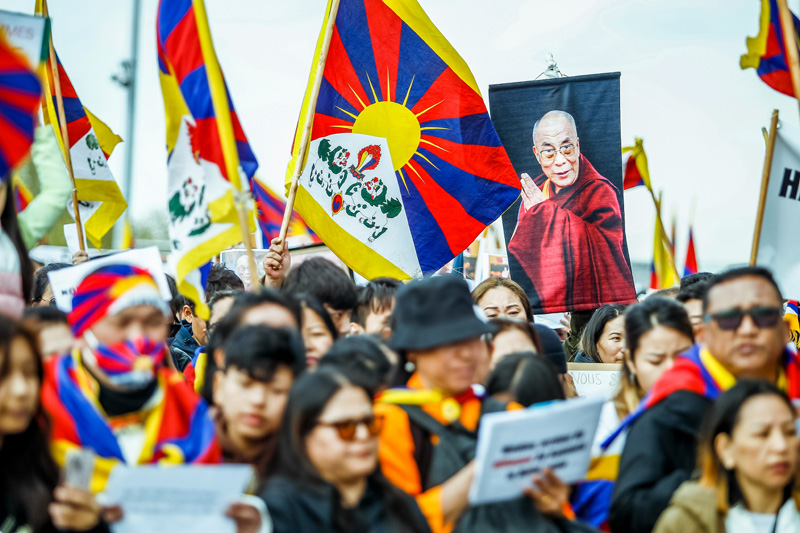Tibetan women-in-exile members demonstrate against Chinese authorities in Shimla

Tibetan women-in-exile members recently held a demonstration in the Indian hilly town of Shimla to mark the 65th anniversary of Tibetan Women’s National Uprising Day.
They also protested against the atrocities committed against Tibetan people by Chinese authorities.
The Tibetan women-in-exile participated under the banner of the Regional Chapter of TWA (Tibetan Women Association) and appealed to the international community to support the cause of Tibet, reported ANI.
Dawa Cheodon, the organiser of the protest and Tibetan freedom activist said that through the protest, they aim to globally highlight the situation in Tibet amid Chinese atrocities.
“Today we are here to mark the 65th Women National Uprising Day. On this day in 1959, 15,000 Tibetan women gathered near Potala Palace to protest against Chinese illegal occupation. We have gathered to pay tribute to those who died for us. Through this peace march, we are trying to highlight to the world about the situation in Tibet,” Cheodon told ANI.
“There is no internet or news access inside Tibet. China is planning a hydroelectric dam inside Tibet which is a big threat to the people and the monasteries. The degradation of our land and our people only benefits China,” she said.
Tsering Dorjee, the spokesperson of the Tibetan community in exile, highlighted the human rights violations in Tibet and said that the dam being built on the Indo-China border presents a grave threat to the local culture as well as to the region.
The 1959 Tibetan uprising or the 1959 Tibetan rebellion began on 10 March 1959, when a revolt erupted in Lhasa, the capital of the Tibet Autonomous Region, which had been under the effective control of the People's Republic of China since the Seventeen Point Agreement was reached in 1951.
Armed conflict between Tibetan guerillas and the People's Liberation Army(PLA) had started in 1956 in the Kham and Amdo regions, which had been subjected to socialist reform.
The guerrilla warfare later spread to other areas of Tibet and lasted through 1962.
The anniversary of the uprising is observed by Tibetan exiles as the ''Tibetan Uprising Day''.



